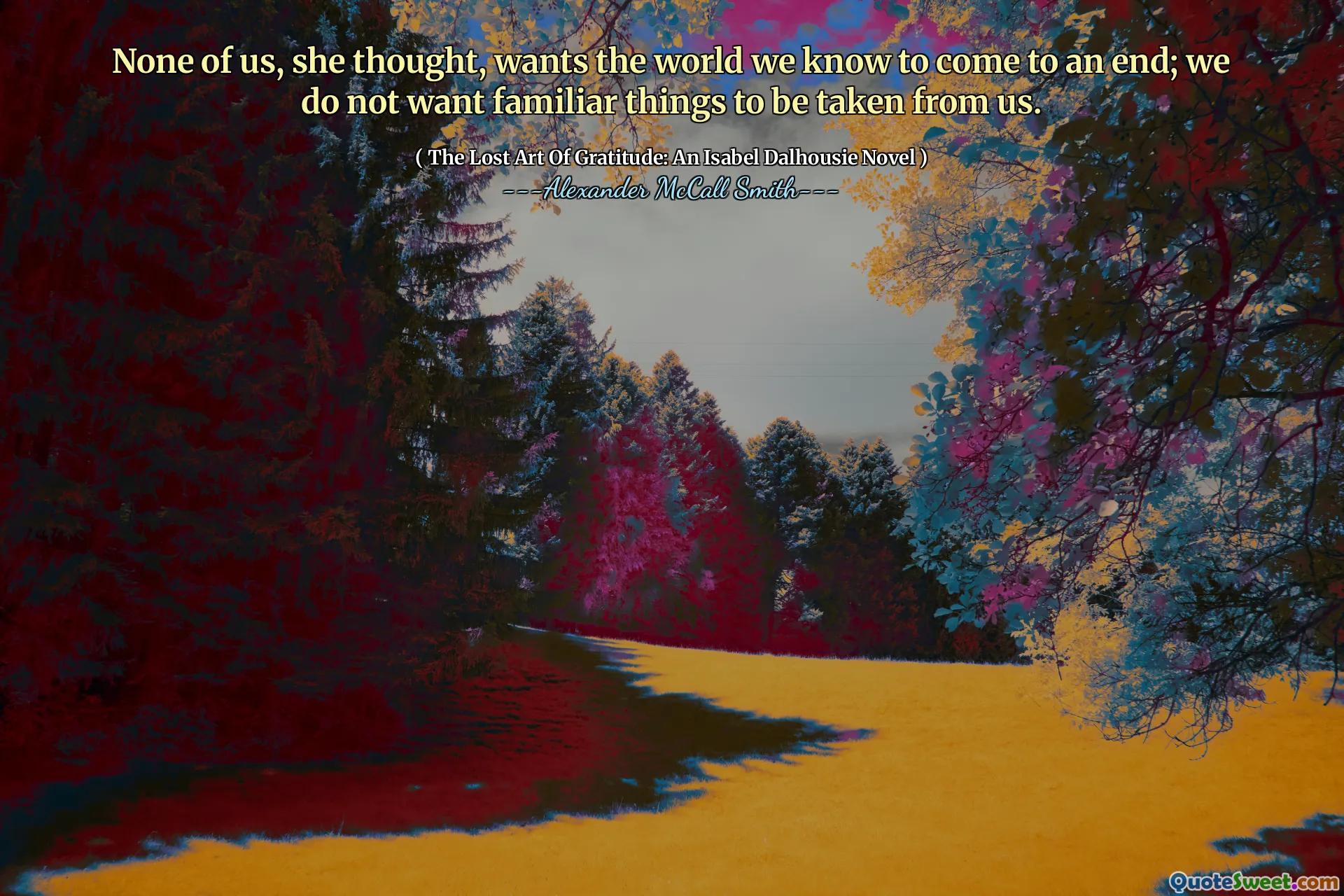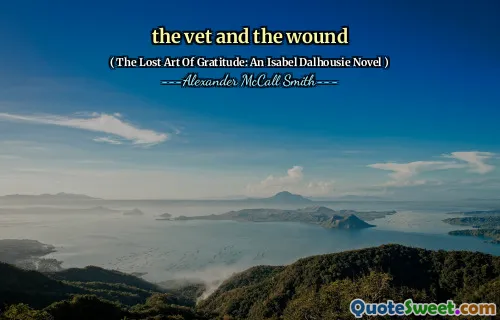
None of us, she thought, wants the world we know to come to an end; we do not want familiar things to be taken from us.
In "The Lost Art Of Gratitude," Isabel Dalhousie contemplates the fear of change and the desire to hold onto what is familiar in our lives. This sentiment resonates with many, as the thought of losing cherished aspects of our world generates unease. The idea reflects a universal struggle against the inevitability of transformation, which can lead to a sense of loss.
The story evokes the deep-seated human instinct to want to preserve our surroundings and relationships. Change is often viewed as a threat to our established reality, causing us to resist it and cling to what we know. Through Isabel's reflections, the book encourages readers to navigate these feelings and think about the value of both familiarity and the potential for growth that change can bring.











